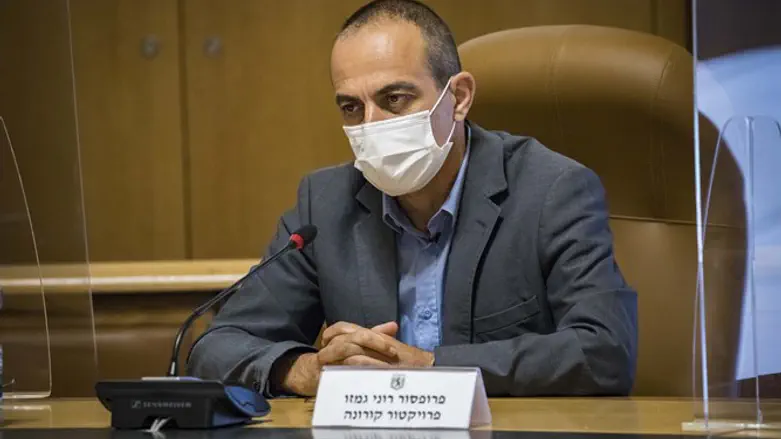
Coronavrus "Czar" Prof. Roni Gamzu recommended to the Coronavirus Cabinet Thursday that schools and malls be closed beginning next week through the entire Hebrew month of Tishrei which begins on Rosh Hashannah next Friday night.
After the High Holidays, Prof. Gamzu recommends that schools resume only up to grade four and that restaurants be allowed to open only until 5 PM.
It was reported last night that the Coronavirus Cabinet will decide today between either a full-scale lockdown as recommended by Health Minister Yuli Edelstein or a more limited implementation of restrictions over the High Holidays as recommended by Gamzu. In the end the Cabinet decided to only raise Gamzu's recommendation for consideration today.
Gamzu explained to the ministers that the problem was that Israel is already seeing high morbidity rates as it enters a period of even greater risks over the High Holidays and from there moves into the winter months.
After four weeks of an almost total lockdown, Gamzu proposes to examine the data from that period and move to an outline of "limited restrictions" for at least another two weeks.
Gamzu noted that the outbreak of the coronavirus among the Arab and haredi populations continues to be severe, but that morbidity levels have also been rising among the general population on a whole. "The high rate of positive tests (15% in haredi society, 11% in Arab sector, and 6-7% among the general population) shows a persistent latent morbidity that intensifies the spread of the disease."
Gamzu further noted that the proportion of patients aged 60 and above is gradually increasing and may soon reach a breaking point. He added that "gatherings on holidays (meal gatherings, prayers, tourism, events) are a sure recipe for increasing morbidity."
The commissioner noted that the level of care provided today in hospitals is good. "However, it can see a severe decline in quality due to the increase in the number of patients," he stated. "The medical staff is capable of answering the challenge, but they are frustrated by the continued rise in morbidity, lack of significant steps to reduce it, and what appears to be public indifference," Gamzu wrote.
